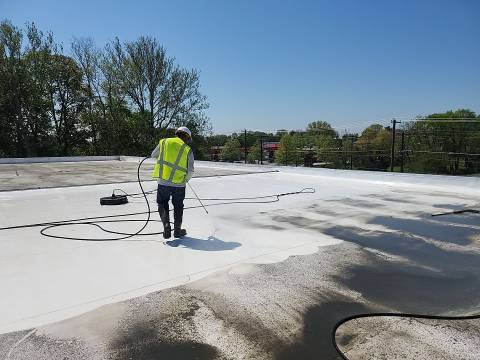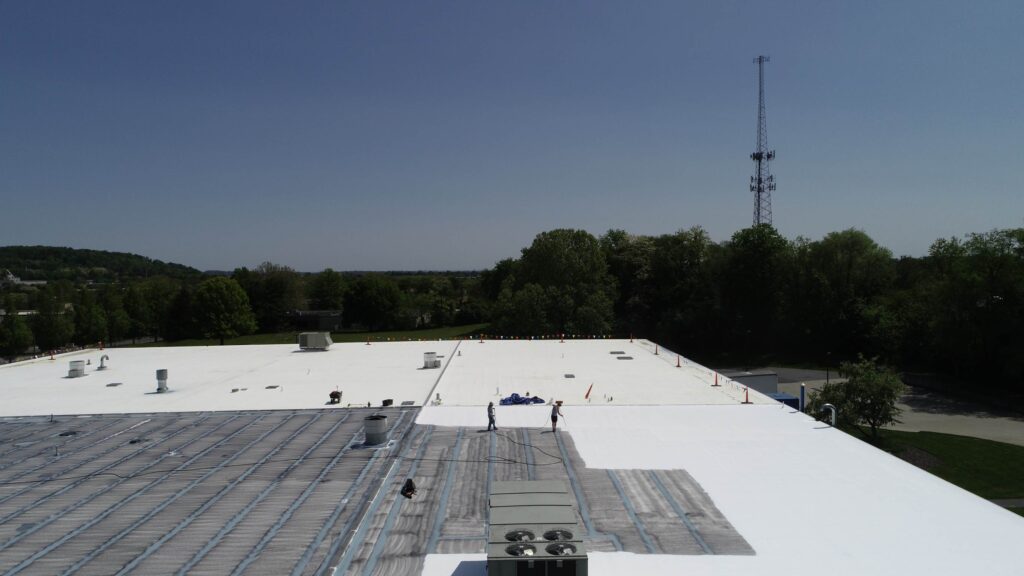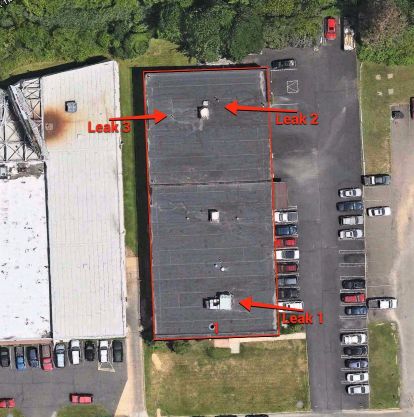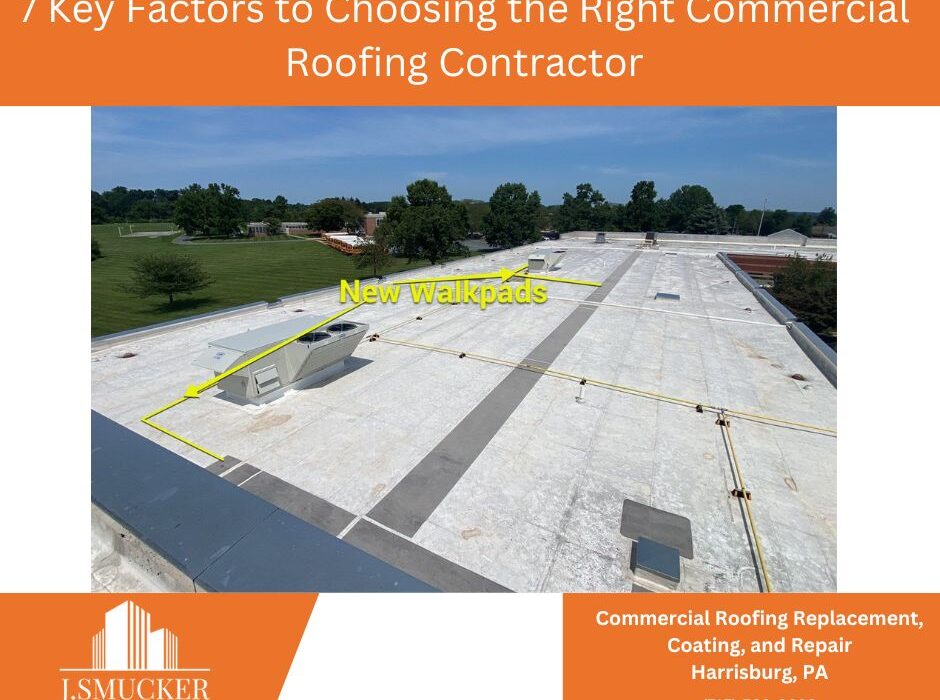- By admin
- Commercial Roofing
- 0 Comment
7 Key Factors to Choosing the Right Commercial Roofing Contractor
When it comes to maintaining and protecting your commercial property, selecting the right roofing contractor is more than important, it’s essential! As we all know, the roof is one of the most important parts of a building, and its integrity and ability to protect the other buildings’ elements is vital to the building’s overall structure, safety and your piece of mind.
With this article, we want to cut out all the fluff and hone in on the key factors that everyone should consider when choosing a commercial roofing contractor.
1. Experience and Expertise
Experience is paramount in roofing, especially for commercial projects when potentially substantial sums of money can be at stake. A contractor with a significant track record in commercial roofing is almost guaranteed to have encountered and resolved a wide-ranging litany of challenges. Look for a contractor with extensive experience in commercial roofing projects similar to yours. If a commercial roofer can’t provide references to previous projects completed (many of which should appear on their website), then that may be a sign they don’t have the experience you’re looking for.
Expertise in different roofing materials and styles can also be crucial. Commercial roofs come in various types, such as flat or slightly inclined, and the contractor should be familiar with various roofing materials such as TPO, PVC, EPDM, and Modified Bitumen (though increasingly less popular) to name the most popular materials; each requiring nuanced skill sets. It should go without saying, but we’ll say it: make sure that the contractor you choose has expertise in the types of roof and roofing materials your project requires.

Reputation is significant! Make sure the company you choose has the reputation to go along with the importance of your upcoming project!
2. Licensing and Insurance
Make sure the contractor your working with is licensed to perform roofing work. Most contractors nowadays are, so it’s almost a given. A licensed contractor will have the necesary knowledge and adherence to building codes and regulations. And if you’re working in a large metropolitan area, the contractor must be familiar with specific city codes and ordinances. Just imagine the building codes one would have to navigate and thoroughly understand in a place like New York City as opposed to, say, Millville, Pennsylvania! The thought of it almost gives you a headache…
3. Reputation and References
A reputable contractor should be able to provide references from past clients. Check online reviews and ratings on platforms like Google Business Profiles, the Better Business Bureau, Yelp, or other local directories. For example, in Lancaster County, PA many prominent businesses in the area are members of the City of Lancaster’s business directory. Additionally, contacting previous clients can give you insights into the contractor’s work, quality, reliability, and customer service.
In terms of Google Business Profiles (formally called ‘Google My Business’), you would generally want to choose a contractor who has at least 4 out of 5 stars. Anything above a 4.5 is fantastic because you have to understand that there exists a segment of the population of overly-angry customers who write negative reviews that aren’t always justified and left without the appropriate context. But that negativity is smoothed out over time with the positive feedback (or additional negative feedback, depending on the quality of the business in question). So, as stated previously, anything above 4 stars is fine. Any company below 3 stars would best be avoided.

It's best to make sure that the contractor you choose to work with has completed projects comparable in size or greater to your own
4. Detailed Proposal and Contract
A professional roofing contractor should always provide a detailed proposal outlining the work scope, materials to be used, timelines, and costs. The proposal should be clear and comprehensive, leaving no room for ambiguity. Also, please make sure that you have a formal contract in place before work begins. This contract should include details on payment schedules, safety protocols, and warranty information.
Lastly, it’s important to know that most commercial roofing companies will provide you with proposals free of charge by sending one of their certified inspectors/employees over to your building site to inspect the building first-hand.
5. Commercial Roof Warranty and After-Sale Service
Inquire about the warranty offered on both materials and workmanship. A good warranty offers long-term protection and peace of mind. However, commercial roof warranties need to be understood fairly well and this paragraph within this article is not going to do you justice. You need to really get a handle on the inns and outs of commercial roof warranties, from labor warranties to materials warranties and everything in between. If you are planning a future roofing project, do yourself a favor, take 10 minutes of your time, and read our previous, in-depth article covering everything you need to know regarding warranties in our article entitled “A Guide to Commercial Roofing Warranties“.
After-sale services, often referred to as ‘preventative maintenance plans’, are also important and, in many cases, necessary to maintain the legality of your warranty. Preventative maintenance services on a commercial roof (usually consisting of regular, bi-annual inspections) are critical when it comes to detecting small issues on your roofing system that can turn into much larger issues if left untreated. For a good reference, you can take a look at J Smucker Contracting’s Preventative Maintenance Plan web page to get a basic understanding of what a good PM plan should include.

Detailed plans, including photos of your project, should be included in the project proposal submitted by the contractor you potentially hire
6. Cost Considerations
While cost is an important factor, it should not be the basis of how you choose your contractor. in other words, in the realm of commercial roofing, shopping around for the cheapest price and ignoring all other pertinent information listed in this article is likely to land you in a precarious situation down the road.
The cheapest option is almost always not going to be the best option in terms of quality and long-term durability. Balance cost with the quality of materials, warranty, and services provided to come out with the best outcome for your upcoming roofing project.
7. Communication and Customer Service
Good communication is key to the success of any project, and that definitely is the case for commercial roofing. You should choose a contractor who is responsive, communicates early, does not need to be tracked down, and keeps you informed proactively throughout the initial contact period to the pre and after-inspection and proposal periods. This will give you a good indication that the company you’re considering will keep you informed with excellent communication throughout the project.
Good customer service indicates a contractor’s commitment to their client’s satisfaction. A lack of proactive customer service can indicate a lack of professionalism, limited accountability, inefficiency in project management, and possible compromises in quality. The good news is that these are all qualities an astute business owner or manager ‘shopping around’ can recognize beforehand, which is not always the case in other areas of business. That’s because there exists the initial contact to free inspection to the proposal phase before anything is signed or any money exchanges hands. Use this to your advantage!
Lastly, we’ll add that it’s important to remember that occasional lapses in customer service can happen in any business. However, a consistent lack of proactive customer service is a red flag and necessitates care consideration when finally choosing the right contractor for you.
Conclusion
Selecting the right commercial roofing contractor involves thorough research and consideration. It’s about finding a blance between experience, quality, safety, and cost. By taking the time to evaluate potential contractors on these key aspects, you can ensure that your commercial roofing project will be completed efficiently, safely, and to the highest standard. Follow the the outline of this article, and you should be good to go!
Choosing the Right Roofing Contractor in Lancaster, PA
A great roofing job not only protects your property but also enhances its value. That’s the commitment the best commercial roofers stand for and is exactly what places J Smucker Contracting at the highest echelon of service and quality workmanship. If you’re shopping around for a quality roofing contractor in Pennsylvania, Maryland, New Jersey, or Delaware, get in touch with J Smucker Contracting, and we will gladly answer any of your questions concerning your upcoming project. We look forward to hearing from you!

